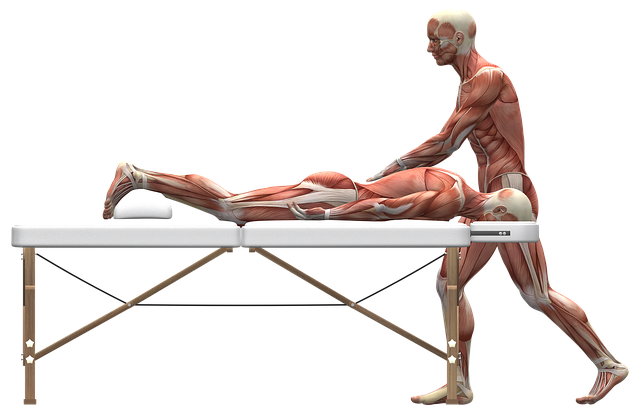Integrative wellness therapy combines mind-body therapies with regenerative practices to offer a holistic approach to health that addresses both mental and physical well-being. This approach leverages the body's natural healing capacities, often with stem cells and PRP, alongside mindfulness techniques for emotional well-being and stress reduction. The synergy between these therapies aims to create a balanced state that supports sustained mental and physical health. It is particularly effective for those experiencing chronic pain, injuries, or mental health issues like anxiety and depression, providing a transformative path toward healing and overall health improvement. This method underscores the interconnectedness of psychological and physiological health, emphasizing stress reduction therapy within holistic mind-body care programs to enhance resilience and promote emotional regulation. Key practices include biofeedback, cognitive-behavioral techniques, meditation, yoga, and guided imagery, all aimed at leveraging the body's innate capacity for self-restoration and fostering a more balanced, resilient state for overall wellness.
Exploring the intersection of mindfulness and regenerative therapies offers a transformative pathway to holistic mind-body care. This article delves into the integration of these practices, emphasizing their roles in mental and physical wellness through mind-body therapies. We will examine how regenerative mental health can be nurtured by combining stress reduction techniques with innovative wellness approaches, ultimately unveiling effective, personalized methods for emotional healing with regenerative care. Join us as we explore this synergistic approach to wellness, where the transformative power of integrative wellness therapy and therapeutic mind-body programs work in concert to promote comprehensive healing.
- Embracing Holistic Mind-Body Care: The Synergy of Mindfulness and Regenerative Therapies
- Regenerative Mental Health: Integrating Stress Reduction and Mind-Body Therapies for Emotional Healing
- The Role of Integrative Wellness Therapy in Promoting Mental and Physical Wellness through Regenerative Practices
- Therapeutic Mind-Body Programs: Harnessing the Power of Regenerative Care for Comprehensive Healing
- Advancing Emotional Healing with Regenerative Care: A Look at Effective, Personalized Approaches
Embracing Holistic Mind-Body Care: The Synergy of Mindfulness and Regenerative Therapies

Mind-body therapies have long been recognized for their role in promoting mental and physical wellness, and when integrated with regenerative therapy, they offer a powerful approach to holistic mind-body care. These therapeutic programs are designed to address the root causes of health issues by harnessing the body’s innate capacity to heal itself, often through the use of stem cells, platelet-rich plasma (PRP), or other advanced techniques. By incorporating mindfulness practices into this mix, individuals can enhance their emotional healing with regenerative care, cultivating a heightened state of awareness and stress reduction therapy that complements the physical interventions. This synergy allows for a more comprehensive approach to integrative wellness therapy, where the body’s natural regenerative processes are supported by the tranquility and focus fostered by mindfulness, leading to a harmonious balance between mental and physical health.
Furthermore, the practice of mindfulness not only aids in stress management but also promotes resilience against future emotional challenges. This resilience is crucial for maintaining mental wellness alongside the tangible benefits of regenerative therapy. The integration of these two modalities can be particularly effective for those seeking to overcome chronic pain, injury, or mental health concerns such as anxiety and depression. By engaging in practices that encourage a deep connection with one’s inner state, individuals can foster an environment conducive to healing, both mentally and physically, ensuring that their journey towards holistic health is both transformative and sustainable.
Regenerative Mental Health: Integrating Stress Reduction and Mind-Body Therapies for Emotional Healing

Regenerative mental health practices are increasingly recognized as vital components in the journey toward holistic mind-body care. Integrating stress reduction therapy with mind-body therapies can be a transformative approach for those seeking emotional healing with regenerative care. These therapies often involve a combination of psychotherapy, mindfulness techniques, and somatic experiencing to address the root causes of distress. By fostering an environment where individuals can safely explore and release traumatic experiences, these therapeutic mind-body programs facilitate a deeper connection between mental and physical wellness, leading to a more resilient and balanced state of being. The emphasis on understanding and addressing the interplay between psychological stressors and physiological responses is central to regenerative therapy and holistic mind-body care, paving the way for sustainable emotional health and overall wellness.
Furthermore, incorporating regenerative mental health practices into integrative wellness therapy can empower individuals with tools to manage stress and promote healing on all levels. Mindfulness meditation, for instance, is a powerful technique that cultivates present-moment awareness and reduces the impact of negative thought patterns. By engaging in regular mind-body therapies, individuals can enhance their ability to cope with life’s challenges, ultimately leading to improved emotional regulation and a greater sense of inner peace. This holistic approach not only contributes to emotional healing but also supports the body’s natural capacity for restoration and resilience.
The Role of Integrative Wellness Therapy in Promoting Mental and Physical Wellness through Regenerative Practices

Integrative wellness therapy stands at the forefront of a holistic approach to health, blending mind-body therapies with regenerative practices to promote mental and physical wellness. This modality recognizes the interconnectedness of the mind, body, and spirit, and leverages regenerative therapy as a cornerstone of healing. Regenerative mental health practices, such as those found in holistic mind-body care programs, are designed to not only address psychological stress but also to stimulate the body’s natural capacity for self-healing and repair. These therapeutic mind-body programs often include stress reduction therapy techniques that encourage emotional healing with regenerative care, fostering a resilient mindset and a robust physical condition.
Furthermore, integrative wellness therapy emphasizes the importance of personalized care, tailoring interventions to each individual’s unique needs. It combines traditional medical practices with complementary therapies, ensuring that patients receive comprehensive treatment for their mental and emotional health concerns. By engaging in a variety of mind-body practices, individuals can experience significant improvements in their overall wellbeing, as these approaches help to alleviate stress, reduce inflammation, and improve the body’s ability to recover from injury or disease. Through this integrative approach, regenerative mental health care becomes an essential component of a balanced lifestyle, promoting both physical vitality and emotional tranquility.
Therapeutic Mind-Body Programs: Harnessing the Power of Regenerative Care for Comprehensive Healing

Embarking on a journey toward holistic health involves integrating various therapeutic mind-body programs that harness the power of regenerative therapy to foster comprehensive healing. These programs are not merely about physical recovery; they encompass a spectrum of mind-body therapies designed to promote mental and physical wellness in tandem. Regenerative mental health practices, for instance, often incorporate techniques such as meditation and yoga, which are instrumental in stress reduction therapy, thereby creating a foundation for emotional healing with regenerative care. This approach acknowledges the interconnectedness of the mind and body, recognizing that psychological well-being significantly influences physical health and vice versa.
Incorporating holistic mind-body care into one’s lifestyle can be transformative. It involves adopting an integrative wellness therapy perspective where mental clarity and emotional balance are achieved through a range of practices. These may include biofeedback, cognitive-behavioral strategies, and other forms of psychotherapy that align with the principles of regenerative care. The goal is to foster resilience, enhance coping mechanisms, and support the body’s natural capacity for self-healing, leading to a more balanced and harmonious life experience. Through the synergy of these practices, individuals can navigate their path to wellness with greater ease, harnessing the healing potential that lies within the mind-body connection.
Advancing Emotional Healing with Regenerative Care: A Look at Effective, Personalized Approaches

Integrating mind-body therapies within regenerative therapy offers a transformative approach to holistic mind-body care. These practices are designed to align physical wellness with mental clarity, fostering an environment where emotional healing with regenerative care can flourish. Through breathwork, meditation, and body movement, individuals can navigate their inner landscapes, identifying and releasing stored stress and traumas. This synergy between mind and body is a cornerstone of integrative wellness therapy, which emphasizes the interconnectedness of our psychological and physiological states. By adopting therapeutic mind-body programs tailored to the individual’s needs, one can enhance their resilience and promote regenerative mental health outcomes, leading to sustainable emotional healing.
The journey towards mental and physical wellness through regenerative care is deeply personal and requires a commitment to self-exploration and self-care. Stress reduction therapy within these programs often involves techniques such as biofeedback, yoga, and guided imagery, which empower individuals to take control of their health. These practices not only aid in the management of stress but also encourage the body’s innate capacity for healing and renewal. As a result, participants engage in a process that is both restorative and rejuvenating, fostering a sense of wholeness and balance that is essential for long-term emotional wellbeing.
In concluding our exploration of the interplay between mindfulness and regenerative practices, it’s evident that these complementary approaches offer a robust pathway to holistic mind-body care. The integration of mind-body therapies within regenerative therapy frameworks stands as a testament to the potential for emotional healing with regenerative care. Through integrative wellness therapy, individuals can achieve mental and physical wellness, leveraging stress reduction therapy to foster a balanced and resilient state of being. The evidence suggests that therapeutic mind-body programs, which harness the power of regenerative care, are not just beneficial but essential for comprehensive healing. As we navigate the complexities of modern life, embracing these practices can lead to profound transformations in health and wellness, underscoring the importance of a holistic approach to care that encompasses both our physical and emotional landscapes.
